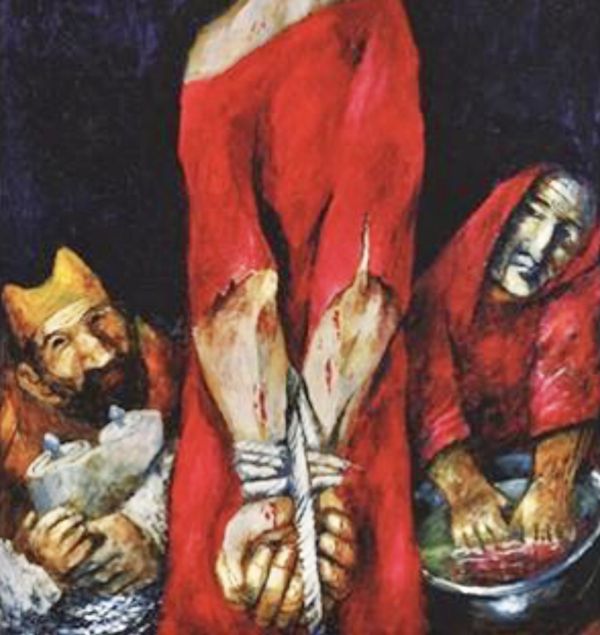In today's passage from Matthew, the conditions for following Jesus are summarised in three verbs and therefore in three movements: renounce, take up the cross, follow Christ.
Jesus emphasises that life will not come to us from worldly gain, but from the loss of every advantage and esteem for the sake of the Gospel.
At the beginning of the Earlier Rule (1221), Francis writes that the friars desired to live following the example of the Lord Jesus.
He emphasises various expressions of the Gospel, highlighting the importance of denying oneself and taking up the cross.
The pious father often gathered his sons around him and spoke at length about the Kingdom of God, "about contempt for the world, about the need to deny one's own will" (FF 1058), teaching them:
"Go [...] proclaim peace to men; preach penance for the remission of sins. Be patient in tribulations, vigilant in prayer [...]" (FF 1058).
Leaving oneself behind to embrace the call in all its fullness, willing to lose one's life in order to find it in the Incarnate Word, was the leitmotif of their daily lives.
A passage from the Sources, taken from the Leggenda maggiore, is illuminating:
"While he was praying one day, isolated from the world and completely absorbed in God, in the excess of his fervour, Christ Jesus appeared to him, as if crucified.
At the sight of him, his soul melted. The memory of Christ's passion was so deeply imprinted in the depths of his heart that from that moment on, whenever the crucifixion of Christ came to mind, he could hardly restrain himself, even outwardly, from tears and sighs, as he himself confided later, when he was approaching death.
The man of God understood that, through this vision, God was addressing to him that maxim of the Gospel:
«If you want to come after me, deny yourself, take up your cross and follow me» (FF 1035).
And again, in the Second Life, Celano emphasises:
"Francis was already dead to this world, but Christ lived in him. The delights of the world were a cross for him, because he carried the Cross of Christ rooted in his heart" (FF 800).
But Chiara, the first little plant of the blessed father, always strove to deny herself, spurring her own soul and that of her sisters with assiduous meditation on the Passion of Christ.
"In order to nourish her soul unceasingly with the ineffable joys of the Crucified One, she meditated very frequently on the prayer of the five wounds of the Lord.
She learned the Office of the Cross, as composed by St. Francis, the lover of the cross, and she used to recite it with equal love" (FF 3216).
In her beautiful letter to Ermentrude of Bruges*, Clare expresses herself thus:
"Lift up your eyes to heaven, O dearest one, for it is an invitation to us, and take up the cross and follow Christ who goes before us. For after many and various tribulations, it is He who will bring us into his glory.
Love God with all your heart, and Jesus, his Son crucified for us sinners, and never let the memory of him fall from your mind.
Meditate without tiring on the mystery of the cross and the sorrows of the Mother standing at the foot of the cross" (FF 2915).
Chiara, following the example of Francis, lived the Word of the Gospel enclosed in San Damiano, for love of her Spouse, rejecting all worldly desires.
She was always aware that the Spouse, upon his return, would reward each person according to his or her actions, according to his or her life.
During her lifetime, she chose to live in seclusion for the One she loved and by whom she felt loved.
The penitential and renouncing dimension is no longer so harsh and disconcerting when it is Charity that makes the beauty of the spousal and regenerative experience she made, by Grace, as well as that of many of her sisters, transpire from the walls.
* Ermentrude was responsible for spreading the Order of St. Clare in Flanders.
Friday of the 18th wk. in O.T. (Mt 16:24-28)


